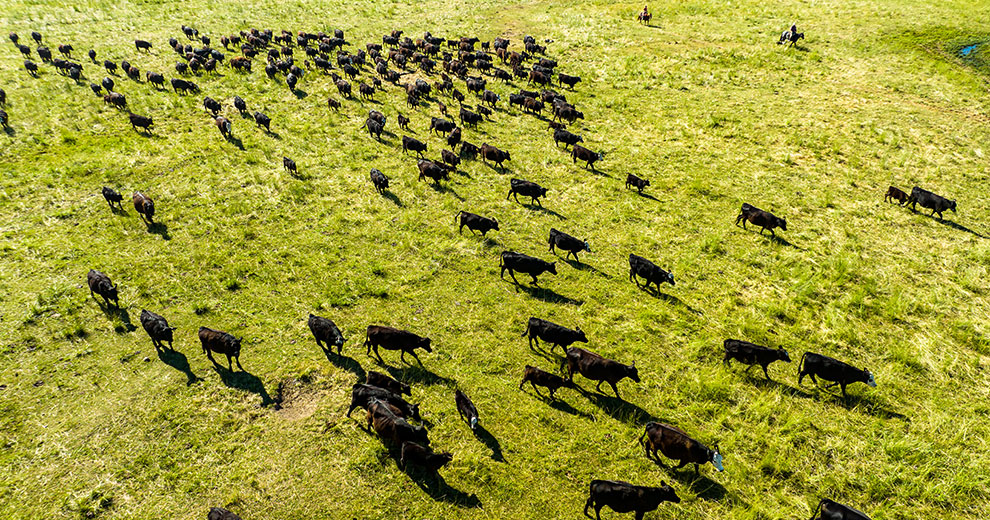Grass tetany in cattle – symptoms, treatment and prevention
March 20, 2023

March 20, 2023
Grass tetany is a magnesium deficiency syndrome which primarily affects mature cattle grazing on lush, succulent forages. Grass tetany and milk fever (caused by sudden calcium deficiency) have similar symptoms, but cows with milk fever are lethargic, while cows with tetany exhibit more aggressive and violent symptoms. Cows can have calcium and magnesium deficiency at the same time, which is why supplements containing both minerals are often used.
Magnesium is a mineral that is necessary in nerve function and muscle contraction. Mature animals are far more susceptible to grass tetany than younger ones because of their inability to mobilize magnesium from their bones to effectively balance water in their bodies, called body fluid homeostasis.
The most consistent clinical sign of grass tetany is hypomagnesemia, and typical grass tetany is frequently described as hypomagnesemic tetany, an acute neurological condition due to low dietary intake of magnesium.
Cattle with grass tetany become excitable, develop muscle tremors and exhibit difficulty walking and breathing which can lead to convulsions, recumbent paddling and thrashing, coma, and death.
Tetany usually occurs near the time when a cow is giving birth until approximately two months postpartum, around peak milk production. The frequency usually increases with older, high-milking cows. Tetany occurs most frequently in beef cows grazing pastures, and cool, rainy weather generally accelerates the occurrence of grass tetany.
Treatment for grass tetany involves addressing the magnesium deficiency and providing supportive care. If you suspect that one of your cattle is suffering from grass tetany, it is crucial to consult a veterinarian immediately for a proper diagnosis and treatment plan.
Remember that grass tetany can be a life-threatening condition, and prompt veterinary intervention is crucial. Additionally, it is essential to develop a prevention plan to reduce the risk of recurrence in your herd.
To learn more about how to effectively reduce your risk of grass tetany in the spring, connect with your local Payback dealer. Find a dealer